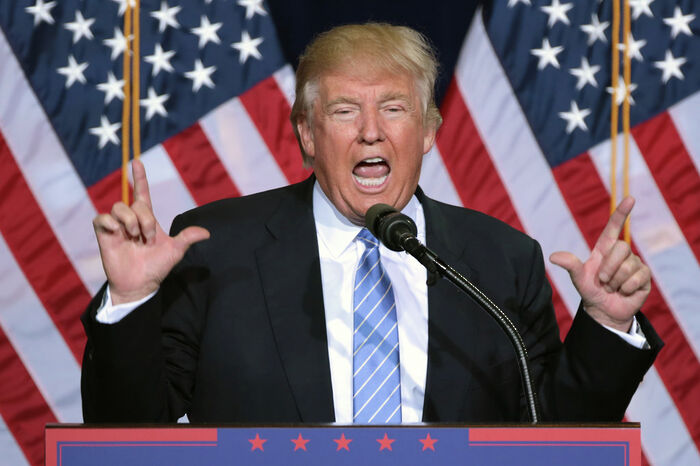We must be wary of the role social media plays in politics
Looking at the way social media influenced the 2016 presidential election, Anna Cardoso warns that the power of social media is potentially dangerous for our political discourse

I wonder if historians will look back at the 2016 US presidential election and say it was the first election of the internet age. It’s possible. The past year has shown us how powerful social media can be in politics. The disinformation that the Russian government was able to circulate to American voters on Facebook and Twitter would never have passed muster in the traditional press. There is no ethical standard that has to be met on the internet and disinformation is, and always has been, effective. Fake news became fact on social media, to the point that Hillary Clinton running an underground paedophilia ring out of a Pizza Hut basement was a headline that some people were taking seriously.
My question is: can social media have a positive impact on politics, and is the way Generation Z are using it politically productive?
Politics has always been about appealing to the people: detailed discussion of the nitty-gritty never triumphs in battles of rhetoric. I’m not arguing, though, that our political discourse has moved from highbrow policy debates to being a battle of gifs. Political campaigns have been condensing complex policy agendas into ‘sound-bites’ since the dawn of democracy.
“Social media just isn’t sufficient in exacting the kind of change so many of us want to see in society”
However, the way that Trump supporters were able to ‘meme-ify’ Trump, casting a repulsive billionaire as both a man of the people and the saviour of America, undeniably made him more palatable to the average American voter. Sure, most lower middle class white Americans aren’t on 4chan, but such representations of Trump were circulated around Facebook as well as more niche, right-wing corners of the internet.
Moreover, social media’s algorithms create echo-chambers designed to show us posts and articles we will likely agree with and hide those we will not. Given that many highly-educated young people (as we all are) are left-leaning, most of my Facebook is full of articles and opinions that I could have written myself.
At first, this seemed to simply parallel real life, where most of our circle tends to have similar political opinions to us. However, social media has widened the schism between the political poles further than it ever has been in modern American history: nowadays, political opponents do not share facts any more. Social media’s culpability in this crisis of confidence should not be understated. Indeed, we should be wary of the power of industry titans like Mark Zuckerberg. Having the ability to curate what people see is an immense power for these Silicon Valley magnates to have. We, the populace, ought to be very wary of the way they wield it.
When we ‘like’ a political article, or share an Obama speech, it feels like we have participated in politics. Really, what we have done is virtually signalled to our social groups, showing we are ‘woke’ and that we care. I worry that our generation’s social media obsession gives us a false sense of pride in our participation. This is especially true given that, realistically, many of the people that follow us share our political opinions – so we haven’t changed any minds with our posting. Our likes don’t change the wider political consensus. Our shares among our friends don’t change party policy.
What would actually help would be calling up our representatives, becoming members of parties, or canvassing doorsteps. Or, more simply, actually turning out to vote would work; our demographic is notoriously unreliable. If we could be counted on to turn out, perhaps politicians would consider advocating for policies that would help young people. Instead, parties tend to consistently enact policies that benefit people who may be relied upon to vote for their party (older white people).
Yet, this past year has also shown us that social media can also have a positive impact on our political discourse. The anti-Trump, pro-women marches that happened across America after Trump’s inauguration were largely organised on social media. I am more knowledgeable about politics than I have ever been, thanks in part to people in my social media network sharing informative articles.
Social media just isn’t sufficient to enact the kind of change so many of us want to see in society. It should be one of many tools in our political strategy. We should also recognise its capacity to put us into little, homogeneous boxes, surrounded by like-minded opinions. Cross-party discourse has been lost in a social media frenzy of hatred and fake news; it is our responsibility, as the new generation of both leaders and active participants in democracy, to try to rectify this
 News / Cambridge academics stand out in King’s 2026 Honours List2 January 2026
News / Cambridge academics stand out in King’s 2026 Honours List2 January 2026 Interviews / You don’t need to peak at Cambridge, says Robin Harding31 December 2025
Interviews / You don’t need to peak at Cambridge, says Robin Harding31 December 2025 News / AstraZeneca sues for £32 million over faulty construction at Cambridge Campus31 December 2025
News / AstraZeneca sues for £32 million over faulty construction at Cambridge Campus31 December 2025 News / News in Brief: Maypole mentions, makeovers, and moving exhibits4 January 2026
News / News in Brief: Maypole mentions, makeovers, and moving exhibits4 January 2026 Features / “It’s a momentary expression of rage”: reforming democracy from Cambridge4 January 2026
Features / “It’s a momentary expression of rage”: reforming democracy from Cambridge4 January 2026










